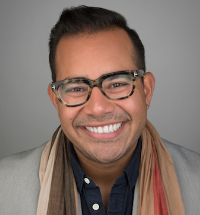
The HPTN Scholars Program is now accepting applications. A completed full application package is due February 2, 2024. Applicants are strongly encouraged to start preparing for the process early. To learn more about the Scholars program, including eligibility criteria, application materials and due dates, please visit the HPTN Scholars Program webpage. For questions about the program, please contact the HPTN Scholars Program Management Team at scholarspm@hptn.org.
Since the HPTN Scholars program was established in 2010, more than 70 talented early career, underrepresented racial and ethnic minority investigators have participated. Past Scholars have gone on to receive K01 and K23 awards, serve as principal investigators on R01, R03, R21, and R34 studies, receive Centers for AIDS Research (CFAR) supplement funding, chair HPTN studies, publish peer-reviewed manuscripts, and speak at NIH meetings and international scientific conferences.
The HPTN Scholars program provides participants with the knowledge, skills, and connections to further their careers as independent investigators in the HIV prevention research field. During an 18-month period, Scholars conduct secondary analyses of HPTN study data, working alongside leading HIV prevention researchers affiliated with the Network. The HPTN Scholars Program is funded by the U.S. National Institute of Allergy and Infectious Diseases, the U.S. National Institute of Mental Health, and the U.S. National Institute on Drug Abuse, all part of the U.S. National Institutes of Health.

“Now in its thirteenth year, the HPTN Scholars program has repeatedly been cited as a success and model for engaging underrepresented scientists and practitioners of the highest quality in Network science. The impact these outstanding scholars are making can be seen in their prolific scholarly contributions and professional progression.”
– Dr. Darrell Wheeler, HPTN Domestic Scholars Program Co-Chair
The HPTN Scholars Program includes two components: a domestic (U.S.) program and an international program. Both programs seek to increase opportunities for scientists from groups under-represented in HIV prevention research. In the domestic program, successful applicants will be investigators who have received their terminal degree (M.D., Ph.D., etc.). Current M.D., Ph.D., and MBChB students may apply for the international program and individuals who have already graduated with their terminal degree. In both programs, applicants should desire to work with a mentor scientist in the Network to complete a research project based on an existing HPTN research study. Scholars are provided funding to cover a portion of their time and expenses (typically 10-30%), including travel and research materials and supplies.

“The HPTN Scholars Program is an insightful investment in nurturing the next generation of HIV prevention scientists. The Scholars Program Alumni and their ongoing successes and leadership in HIV prevention science and academia is the best evidence that this [program] is not just a dream or aspiration.”
– Dr. Quarraisha Abdool Karim, HPTN International Scholars Program Co-Chair
To help prospective applicants, several current and past HPTN Scholars share their advice on what goes into a successful application:

“When developing the proposal, develop or use a conception framework that will highlight all your variables and outcomes on one page. Always think how your concept fits into the agenda and priorities of the network. And consult a mentor early in the developmental process. Their expertise will help crystallize your concept and highlight things that you may have overlooked.”
– Dr. Kudzai Hlahla, 2022-2023 HPTN International Scholar

“Communicate with your mentor early and often in the application process to receive feedback on your proposed project as they will be able to guide you in what's likely a feasible question to ask for your secondary analyses."
– Dr. David Zelaya, 2022-2023 HPTN Domestic Scholar

“Be strategic about getting a letter of recommendation from someone who can continue to mentor you during your time as a Scholar. The ideal letter writer should have a deep expertise in HIV and can continue to support you over your career trajectory."
– Dr. Ndidiamaka Amutah-Onukagha, 2021-2022 HPTN Domestic Scholar

“The applicant should review published work to ensure that others have not yet published the research question. Once the research question has been identified and refined, it is worthwhile to contact previous Scholars for advice on the application process and the HPTN coordination team for more information on the requirements that applicants should follow.”
– Chiti Bwala, 2021-2022 HPTN International Scholar
We look forward to receiving your application!

